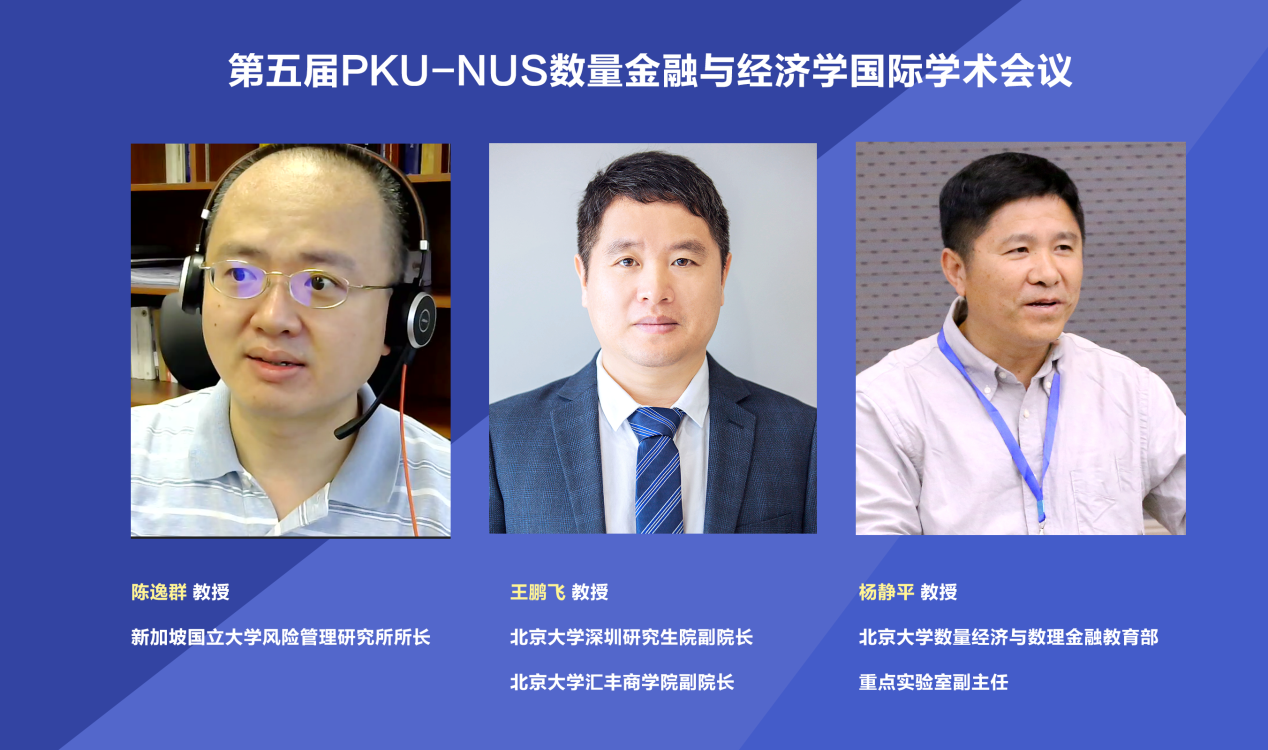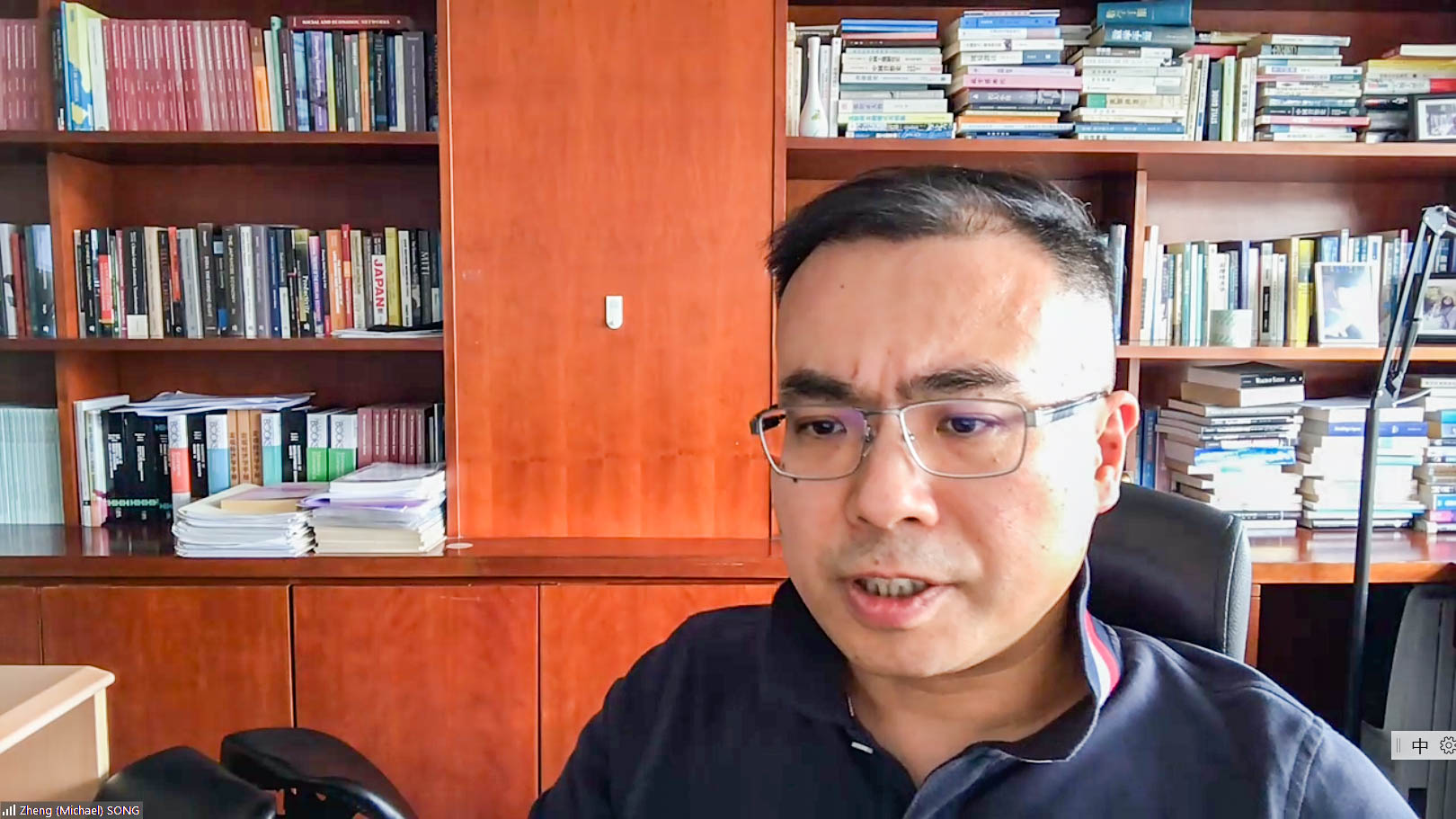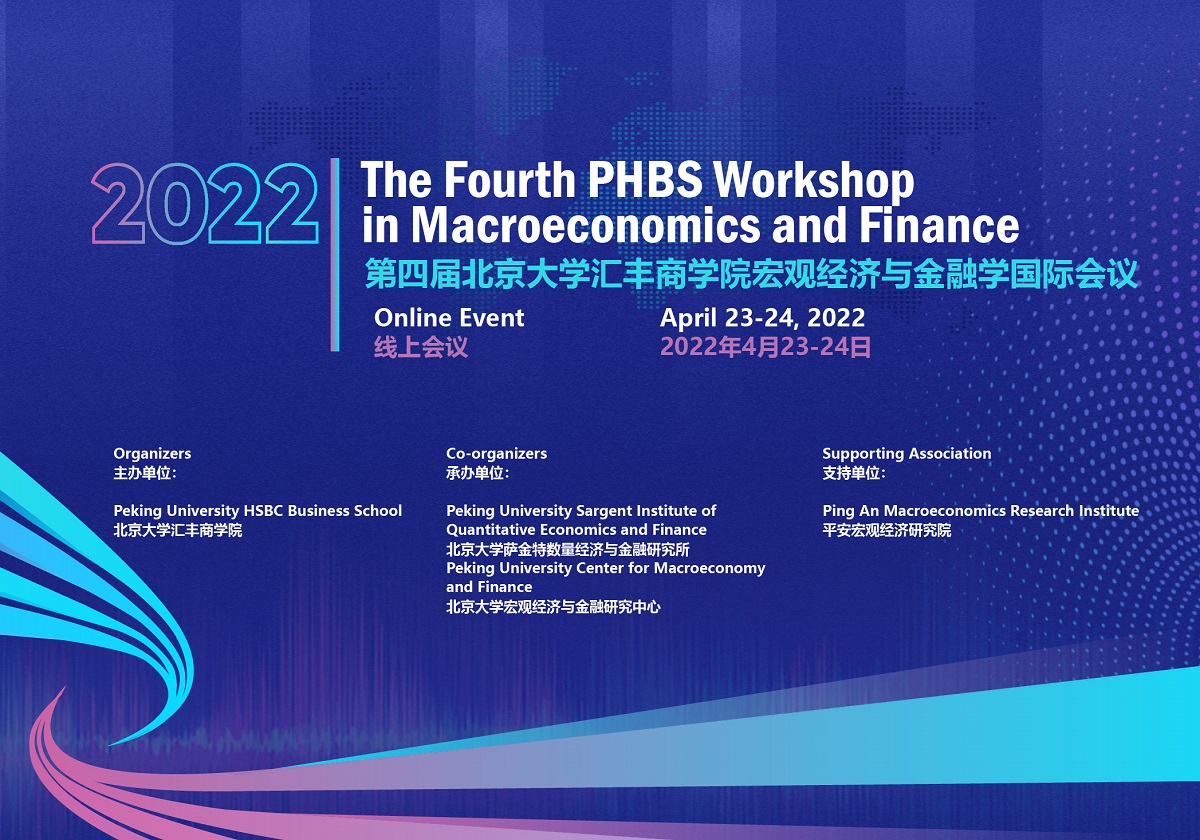From left to right, Professor Chen Yi-Chun, Professor Wang Pengfei and Professor Yang Jinping
Opening remarks were delivered by Chen Yi-Chun , Director of RMI, National University of Singapore; Wang Pengfei, Associate Dean of Peking University Shenzhen Graduate School and PHBS; Yang Jinping, Deputy Director of Key Laboratory of Mathematical Economics and Quantitative Finance. They hoped that conference could not only enhance the relations between PKU and NUS, but also promote more in-depth and extensive inter-university academic exchanges and cooperation.
Professor Song gives a keynote speech
This conference’s keynote speakers included Professor Asher Wolinsky from the Department of Economics of Northwestern University, Professor Song Zheng from the Department of Economics of the Chinese University of Hong Kong, and Professor Paul Glasserman from Columbia Business School. Song presented his paper "Unequal Returns to China’s Intercity Road Network.” The article quantitatively analyzes the problem of resource mismatch in the construction of China's intercity roads by estimating the rate of return on investment of the intercity road network. Wolinsky and Glasserman respectively talked about their papers "Auctions with Frictions" and "Linear Classifiers under Infinite Imbalance with Applications to Credit Risk."
41 high-quality academic papers were selected from many submissions, covering major fields such as microeconomics, mathematical economics, risk management, macroeconomics and finance, portfolio selection, and quantitative finance. Three papers of our faculty and researchers were selected and presented at the conference.

Professor Jaehyuk Choi talked about his paper "On Simulation of Integral Functionals of Brownian Motion with Applications to Financial Engineering." In this paper, they used the mixture model approach to compute European option prices and Greeks under the stochastic-alpha-beta-rho (SABR) model as the weighted sum of those under the base model, so as to easily perform the Monte Carlo simulation.
Professor Peng Xianhua presented his paper "A Machine Learning Algorithm for Stochastic Control Problems in Economics,” co-authored with Professor Steven Kou of Boston University. Based on deep neural networks and deep learning, they propose a machine learning algorithm for solving high dimensional time-inhomogeneous stochastic control problems, and apply the algorithm to solve various finite-time control problems in economics, such as multi-sector stochastic growth problem and social cost of carbon problem related to climate change.

Operating lease makes up two-fifth of U.S. capital expenditures and are an important channel for obtaining capital. In order to study the difference between leasing and purchase, Ph.D. student Lin Qing and PHBS Professor Li Kai coauthored the paper “Flexibility, Option Value of Leasing, and Investment.” They explicitly built a buy-and-lease decision into the neoclassical investment theory with costly investment reversibility and expandability. Their empirical research shows that the company’s lease capital ratio is significantly positively correlated with the irreversibility of its investment, and the inflexibility of corporate investment encourages companies to use leases to obtain capital.
In addition, other scholars also presented and discussed their papers. They were from universities and institutions at home and aboard, including Yale University, Cambridge University, City University of New York, San Diego State University, National University of Singapore, University of Waterloo, Chinese University of Hong Kong, Hong Kong Polytechnic University, Hong Kong University of Science and Technology, Tsinghua University, Zhejiang University, Tongji University, Southern University of Science and Technology, Shanghai University of Finance and Economics, the Central University of Finance and Economics, and the Federal Reserve Board of the United States.
In the past several years, the PKU-NUS International Conference on Quantitative Finance and Economics has been successfully held to provide a communication platform for academics and the industry, improve the quantitative financial strategies, and respond to regulatory changes in the financial sector.
By Annie Jin

















